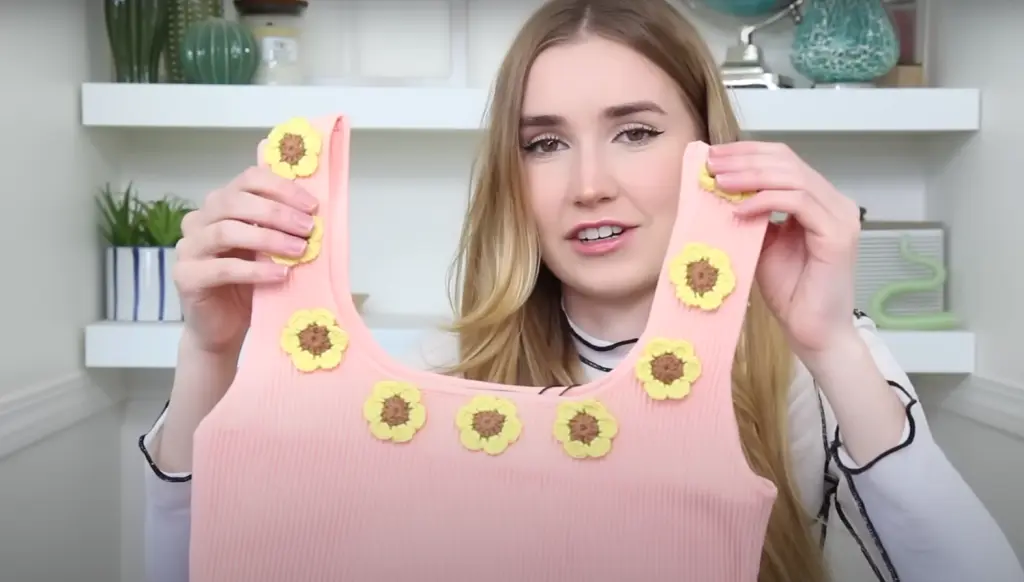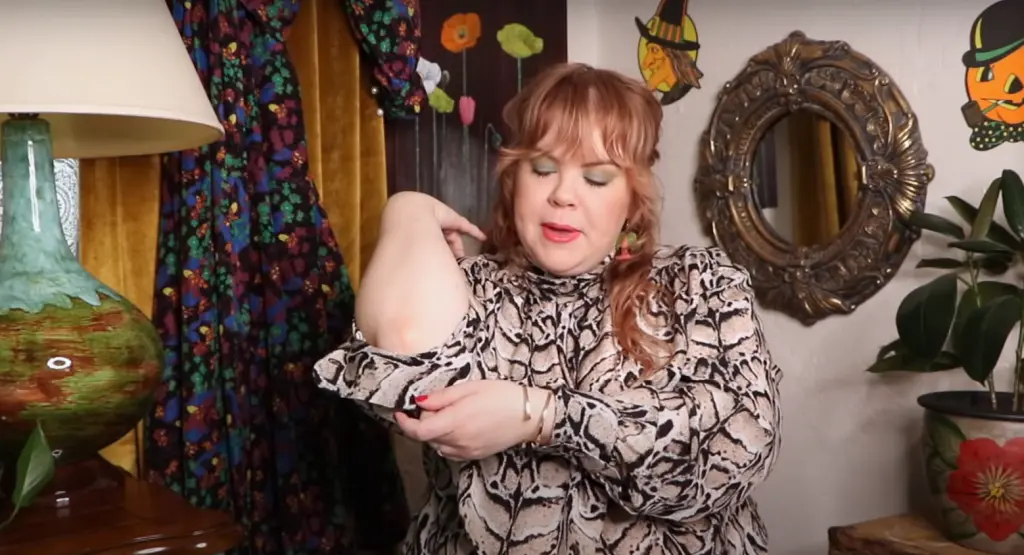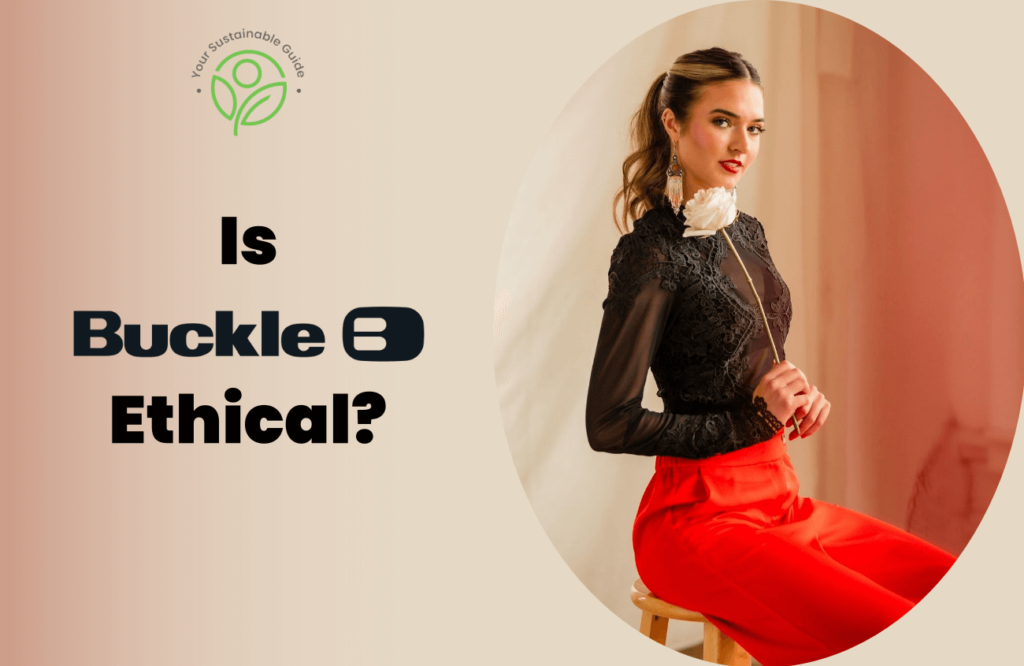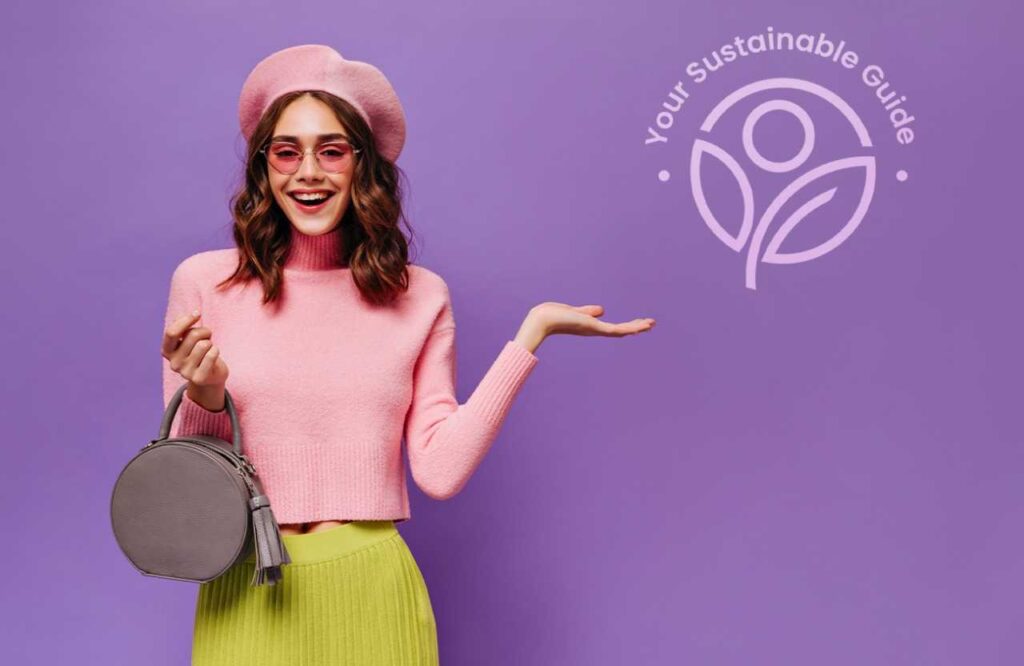Digitally-native Cider is the new hot-shot in the fashion industry. From cutesy sweaters to vibrant mini dresses— you’ll get everything Y2K aesthetic and Super-Instagrammy at Cider.
With a goal to provide low-cost trendy clothes, it aims to make fashion accessible to everyone. But is it possible to offer ethically-made garments at such rock-bottom prices? Is the company implementing eco-friendly practices? Or is Cider just another fast fashion brand?
Cider is taking greenwashing to new heights with its ‘smart fashion’ gimmick, portraying itself as a conscious company. But, in reality, it uses strings of unsustainable materials and implements lightning-speed production cycles. Let’s delve deeper to understand how exactly Cider is playing the sustainability game!

Is Cider Fast Fashion?
Yes, Cider is a fast fashion brand. Daxue Consulting says Cider’s business model is a lot like Shein’s. It mass-produces trending garments, sells them at budget-friendly prices and leverages social media for promotion. With a rapid turnover of styles, new collections are dropped every week, tempting consumers to shop more. And you can actually “Pick A Mood”, depending on how you’re feeling at the moment to shop for clothes. Crazy!
Cider advertises itself as a “smart fashion” label. It claims to manufacture clothes based on data collected on consumer demands. But don’t fall into this trap! Because these are just some greenwashing tactics to cover the environmental impact of fast fashion. Like, how do you explain clothes priced as low as $6? Or thousands of dresses in inventory?
Additionally, majority of its clothing is made from poor-quality fabrics that only last a few wears. These are reasons enough to understand why fast fashion is bad.
Cider is also discreet about its production units and supply chain practices. It is known that fast fashion companies heavily rely on cheap labor from developing countries. And with Cider’s silence, doubts about its factories’ ethical stand just increase.

Is Cider Ethical?
No, Cider is not 100% ethical as it claims to be. It outsources production to low-wage countries but doesn’t list out its entire suppliers’ list. Also, there is no proof that the brand conducts regular audits to verify the working environment of these factories.
Labor Practices
Cider mainly partners with numerous Chinese factories for garment manufacturing. China is one of the most preferred production spots for brands that use sweatshops. And with the country’s reputation for violating labor rights, it becomes crucial to map these factories. But Cider doesn’t seem to bother.
Cider does have a “Zero Tolerance Policy” that addresses Human Rights, Safety, Freedom of Association, Fair Wages, and so on. However, there is no evidence that all these norms are actually followed by its manufacturers.
Owing to the growing pressure of adopting ethical and sustainable practices, Cider just maps out 3 of its suppliers that are SEDEX or SMETA certified. And that’s it! There is no information about the rest of the production units or their working conditions.
Child Labor
Cider’s Zero Tolerance Policy mentions that the company prevents child labor. Its policy goes by, “Work by workers under the age of 16 is strictly prohibited; suppliers should have no history of employing child labor.” However, the brand doesn’t address how it deals with cases of employing minors.
Child labor in the fast fashion industry is a common practice despite being illegal. From picking cotton to spinning yarn, children are forced to toil hard daily. Getting tangled in such practices can significantly damage a brand’s image. So Cider should take this matter seriously and audit its factories regularly to avoid such occurrences.

Sourcing Practices
Cider sources its collections from countries where labor is cheap, and labor laws are lax. With China’s capability of offering the cheapest labor, it serves as Cider’s major supplier. The fashion brand is adored for collaborating with designers globally and offering thousands of styles per week. But in reality, reports state that it steals designs from independent artists. It has also been accused of cultural appropriation for selling a version of “Qipao” – a traditional Chinese garment.
Overall Rating: 1
Is Cider Cruelty Free?
Cider doesn’t have a formal animal welfare policy that aligns with the Five Freedoms. The positive aspect is, it doesn’t use fur, leather, angora, down, or exotic animal skin and hair across its products. But it uses wool in its winterwear, the sources of which are unknown from the first production stage.
The wool industry is ill-famed for its cruel methods. So, while Cider avoids other animal-derived textiles, it can show some responsibility in ethically sourcing its wool.
Overall Rating: 2

Is Cider Sustainable?
No, Cider is not fully sustainable, but it is starting to make some sustainability efforts. It claims to be a “social-first fashion brand” and has a page dedicated to sustainability. It also boasts of following a “smart fashion” approach, where it only makes what its customers want. Cider mentions updating production in real-time using customer feedback, creating less waste compared to regular fashion brands.
Sounds impressive, right? But how can Cider justify the insane number of clothes oozing out of its website? Also, what about the “New Drops” section, which has over 6 different categories with fresh styles added too frequently? Because this definitely doesn’t look like using a smart fashion approach!
Moreover, majority of its products are made from unsustainable fabrics like virgin polyester, nylon, spandex, and viscose. Toxic chemicals used in producing such materials are a huge concern in today’s fashion landscape. And sadly, Cider is just adding to it.
The brand doesn’t mention initiatives to reduce carbon emissions in its supply chain. Additionally, it doesn’t plan to minimize or get rid of harmful chemicals. The only good news is, Cider mentions utilizing the Membrane Technology, which includes microfiltration, ultrafiltration, nanofiltration, etc., for wastewater treatment.
But apart from making such claims, the company doesn’t share reports on how much wastewater it has treated so far. Or what measures is it taking to reduce water consumption levels and the use of harsh chemicals in its supply chain?
To prove Cider is sustainably conscious, it has added a “Recycled Cider Collection”. This selection consists of garments made of Global Recycled Standard (GRS) fabrics, like recycled polyester and cotton. However, compared to the large stock of the website’s dresses made from synthetic materials, you can only find some 150 styles under this Recycled category.
Furthermore, Cider pledges that all of its orders after December 2022 will be shipped in d₂w biodegradable bags. The bags it mentions to use are from the company Oxo, and were inspected by the EU Commission in 2018. It was found that these bags show no evidence of biodegrading over a particular time frame.
Honestly, Cider can do better and actually work on being sustainable rather than just talking big about it.
Overall Rating: 2
Some of the Best Sustainable Alternatives to Cider
Appalled by Cider’s practices? You should be! But fear not because we’re here with some of the most affordable sustainable clothing brands that are good swaps to Cider. Fair trade brands like Baukjen, Luna + Sun, People Tree and Baacal creates long-lasting beautiful pieces that are kind to the earth and its people.
1. Baukjen

Baukjen is a sustainable womenswear label that puts people and the planet at the heart of its operations. Its chic clothes are designed to be capsule pieces that can be easily mixed and matched to create classic looks. Every garment is made from responsibly sourced fabrics like cashmere, hemp, etc., and orders are dispatched in 100% plastic-free packaging. With its Pre-loved and Rent section, the brand aims to help you be a part of circular fashion. Certified as a B Corporation, Baukjen was honored with the Global UN Climate Awards in 2021.
2. Luna + Sun

Luna+Sun is an Australian slow fashion brand that ethically makes its womenswear collection in local factories. Its beautiful clothes represent feminine fashion and are created using the most sustainable fabrics like linen. Each dress is designed to be your go-to pieces as they can be worn in every phase of your life, whether you’re in a season of pregnancy or a nursing mama. As an environmentally conscious brand, Luna + Sun’s garments are Oeko-Tex Standard 100 certified. Plus, they are a PETA-accredited vegan label and use 100% Carbon Neutral shipping.
3. People Tree

People Tree is a “Truly Conscious Clothing” label that offers affordable sustainable clothing. The brand first started in Japan in 1991, when the concept of Fair Trade was hardly known. After receiving immense support, it opened operations in the UK, and today, it primarily caters to customers across the UK and Europe. From simplistic tops and dresses to high-quality bottoms and outerwear, they have everything you need. People Tree is the first international apparel brand certified by the World Fair Trade Association. That’s because all of their pieces are fully traceable.
4. Baacal

Baacal is a size-inclusive label that creates sustainably-made fashion for “The True Majority” women up to size 28. Its range of dresses, tops, bottoms, and jackets, is absolutely eye-catching, hugging your curves at just the right places. The Los Angeles-based label designs garments in classic silhouettes that will last you beyond the fashion season. In order to support the local economy, every product is locally-made in fair trade facilities. Plus, Baacal solely uses responsible fabrics, which include upcycled, vintage, and leftover materials – from fabric to buttons and trim.







